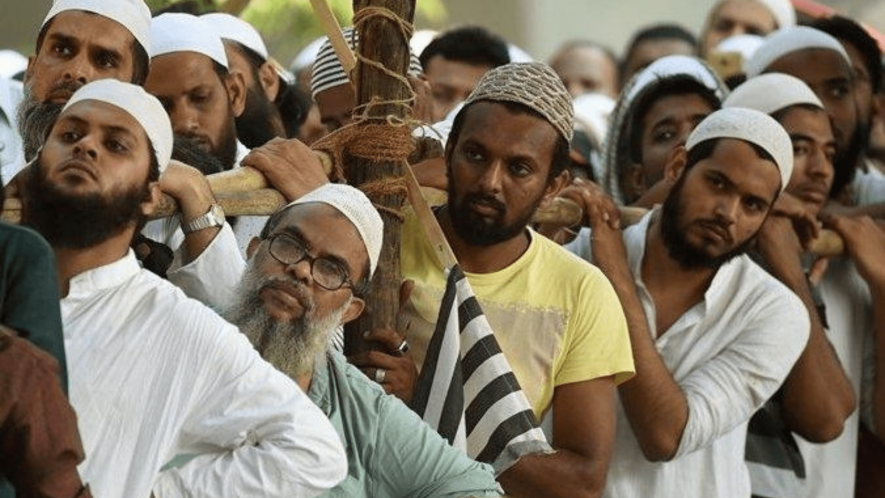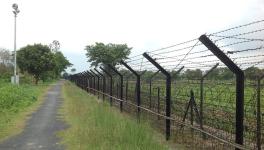Report Finds ‘Systematic Discrimination’ Against Muslims in Govt Schemes in 10 Districts

Representational Image. (File Image)
New Delhi: A development audit report by the SPECT Foundation, a non-profit outfit, titled 'Marginalisation of Muslims in Ten Minority Concentration Districts: Bringing the Equity Question Back Into the Political Discourse' looked at the socioeconomic backwardness in 10 minority concentration districts. The report, released in Press Club of India recently, also addressed the narrative around the "rise of radical Islam" in many districts that lie on India's borders.
The 10 districts selected for the audit have around 1.41 crore Muslims; the community represents 52% of the population of these districts. Moreover, the report says that the choice of the districts was also dictated by the fact that they have been targeted by the Bharatiya Janata Party (BJP) for various reasons, "including alleged population explosion and 'illegal infiltration' from neighbouring countries.'
The chosen districts include Araria (Bihar), Purnea (Bihar), Kishanganj (Bihar), Katihar (Bihar), Dhubri (Assam), Kokrajhar (Assam), Shravasti (Uttar Pradesh), Balarampur (Uttar Pradesh), Malda (West Bengal), and Murshidabad (West Bengal).
The data reveals that the Muslim population in these 10 districts have remained more cut off from basic resources than other regions of the country, which puts into question the myth of 'appeasement of Muslims.'
The primary development parameters in four districts of Bihar portrayed an abysmal socioeconomic picture. The literacy rates are lower than the state average. Moreover, the student-teacher ratio in schools is much higher than the state average, indicating abysmal education infrastructure.
The report also found evidence of 'systematic discrimination against minorities in scheme distribution.' While all these four districts have a low-income population, only 31.20% of the Pradhan Mantri Gramin Awaas Yojana (PMGAY) beneficiaries were Muslims, which 'is 17.5% less than the total average of the Muslim population.' The socioeconomic backwardness is further reflected in Mahatma Gandhi National Rural Employment Guarantee Act (MGNREGA) numbers. The report shows that between 2014-15 and 2020-21, 'there was a greater demand for work in this region than the state average.' The situation worsened during the COVID pandemic.
The myth of population explosion among Muslims gets busted in the two districts of Uttar Pradesh. The decadal population growth (DPG) in Shravasti was -5.02% between 2001-11. It declined by 32.23% from the previous decade. In Balrampur, the DPG saw an increase, which was marginal compared to other districts.
The literacy levels in both Balrampur and Shravasti are relatively lower compared with other districts. While the state average is 57.25%, it comes down to 49.51% in Balrampur and 37.89% in Shravasti. The NFHS-5 data shows only 16.8% of women in Balrampur districts have completed 10 or more years of schooling. The state average is 39.3%. Shravasti also fares poorly when it comes to health infrastructure. It ranks as the poorest among all Uttar Pradesh districts.
The situation is similar in the two districts of Assam selected for the development audit. In Kokrajhar, 'the number of functional lower primary schools has declined.' The lack of universities in the district means that students often migrate for higher education. Both Kokrajhar and Dhubri have 'poor infrastructure and poor health outcomes.'
Malda and Murshidabad, districts of West Bengal, have a higher concentration of Muslims, at 51% and 66%, respectively. The BJP has attacked these districts for 'rising population owing to infiltration from neighbouring Bangladesh.' The report shows that these districts saw a negative decadal population growth, indicating that the BJP's propaganda is false. The state of education and health infrastructure is also poor.
The report also called out secular parties for succumbing to the 'prejudiced and motivated 'appeasement' bogey raised by the BJP.' As a result, the secular parties shy away from addressing the issues concerning the marginalisation of Muslims.
"The socioeconomic marginalisation of Muslims is part of the larger process of persecution of the community. It is also against the basic ethos of democracy if a community is systematically left underdeveloped and affirmative actions for its social welfare are intentionally and vindictively stymied," the report stated.
Get the latest reports & analysis with people's perspective on Protests, movements & deep analytical videos, discussions of the current affairs in your Telegram app. Subscribe to NewsClick's Telegram channel & get Real-Time updates on stories, as they get published on our website.
























